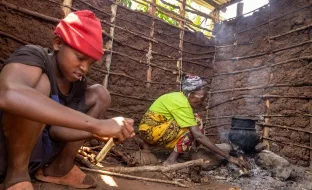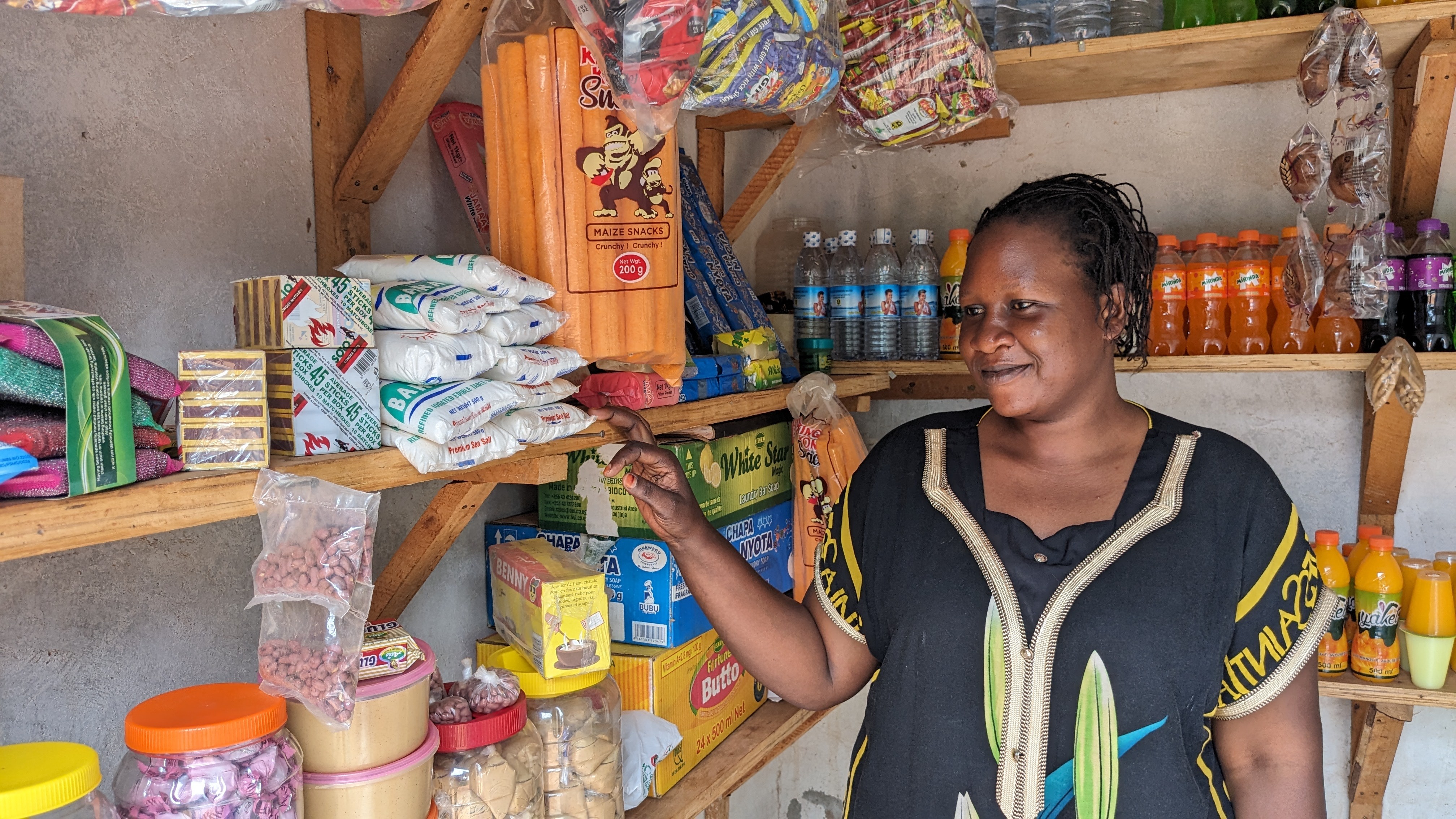Research study: Two years after a $1000 payment, refugees were more likely to have grown assets & income
GiveDirectly sought to understand if a large, one-time unconditional cash transfer of $1,000 could improve the economic and psychological well-being of refugees in Uganda’s Kiryandongo settlement. The evaluation found that compared to a control group, refugees who received the $1000 were spending more, owned more valuable assets, had more business revenue, and increased psychological well being & self-reliance. Most of the positive outcomes in economic and psychological well-being are sustained over two years after payments ended.
Program design
The Kiryandongo refugee settlement in Uganda hosts ~75,500 refugees, most of whom have fled sustained violence in South Sudan. These families are part of a “protracted displacement,” living as refugees for prolonged time periods because the crisis that led to their displacement is ongoing. GiveDirectly identified recipient households in Kiryandongo using data provided by the UNHCR containing information on ~10,000 registered refugee households. Since early 2018, GiveDirectly has been rolling out a one-time unconditional cash transfer of $1000 to all households. The study used a public lottery to assign ~9000 households into one of 24 cohorts. Refugee households in cohorts 1 and 2 formed the treatment group which received their transfers before the endline survey. The control group comprised households chosen at random from cohorts 17 to 20, which had not received transfers by the endline survey.
Results
The impact evaluation combined a randomized controlled trial of 1,264 and 1,090 refugee households, at midline and endline respectively. Additionally, researchers are still analyzing results from a longitudinal qualitative study of 32 refugee and 21 non-refugee households in the nearby ‘host’ community.
An earlier follow-up survey (midline) was conducted during the COVID-19 pandemic – 4 to 8 months after cash transfers – to establish if cash transfers had any impact during the pandemic on households that had received their funds. At midline, compared to refugee households that did not receive funds, recipient households experienced improved psychological wellbeing by ~9% (a 0.22 standard deviations increase), and reduced food insecurity by ~8% (a 0.2 standard deviations decrease). The follow-up survey study showed no effect on food consumption, and perceptions of safety and security.
The endline survey was conducted two years after the cash transfers commenced. An average of 19 months after receiving the transfer, recipient households showed increased consumption, asset ownership, business ownership and revenue, psychological well-being, and self-reliance. The evaluation did not find statistically significant effects on food security, migration, female empowerment, employment, household size, or the household dependency ratio.
Increased consumption: Households that received cash transfers increased their purchase of goods and services by $32.30 USD (or 11%) relative to a control group mean of $297 USD per month. This increase is meaningful; it is roughly the same amount that the average family spends on educational expenses in a month. Quantitatively, the increase is driven in large part by increased food consumption.
Increased value of asset ownership: The value of durable goods (assets) owned increased by $1,386 USD (or 60%) compared to a control group mean of $2,286 USD. The value of homes increased by $488 USD (47%) since many households used their transfers to construct or improve housing, such as adding another room or installing an iron-sheet roof.
Increased business ownership and revenue: Recipients established new businesses and the share of recipients whose household owned a non-agricultural business increased by 8.6% compared to the control group mean of 22%. Additionally, households that received cash earned $14.30 USD (or 64%) more monthly business income compared to a control group mean of $22.30 USD.
Improved psychological well-being: The study showed positive effects on psychological well-being and the Refugee Self-Reliance Initiative self-reliance index for recipient households. On average, the treatment group at endline scored 0.28 standard deviations higher on the composite psychological well-being index compared to the control group. Despite the increase, both the treatment and control groups show signs of depression and moderate stress.
Increased self reliance: After receiving the transfer, recipients scored 0.13 points higher on the Refugee Self-Reliance Initiative self-reliance index. The improvement in self-reliance is driven by having less debt, and smaller, positive increases in employment, housing, and less reliance on assistance.
Of note: around the time payments were beginning, Uganda initiated COVID-19 lockdown protocols, impacting earnings and education. At the same time, the World Food Program funding shortfalls forced them to cut the monthly food aid allocation from approximately $8.25 to $5.75 and then further to $5.05. This suggests the impact of a $1000 might be even greater in future contexts.
Press & blogs
Study: refugees build independence with cash aid — GiveDirectly
Refugees, Shocks, and Cash Transfers: A $1000 cash transfer provides lasting benefits for refugees — IDinsight

